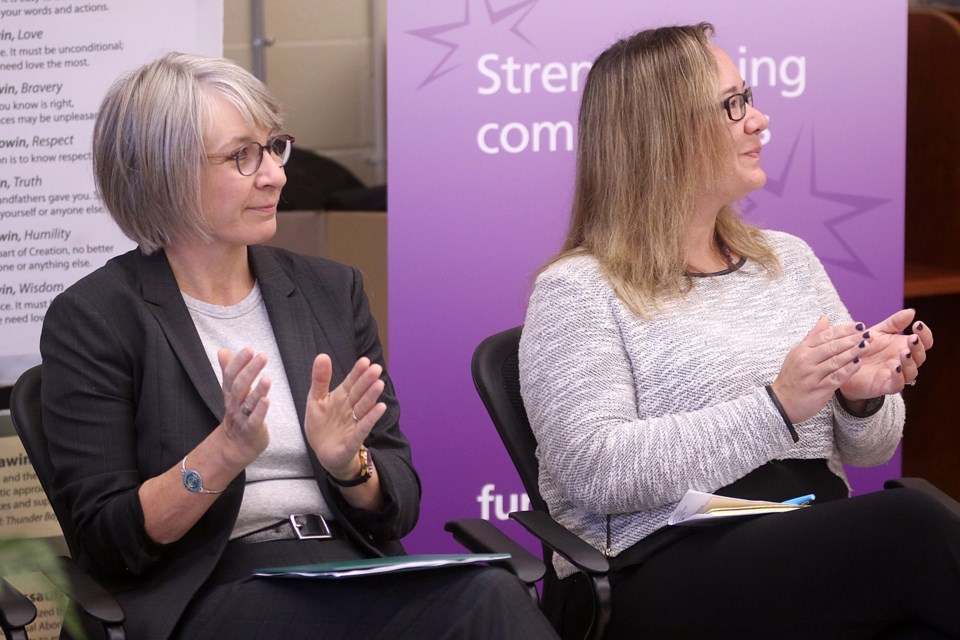THUNDER BAY – The Ontario Native Women’s Association is just one of several organizations that will benefit from $2.7 million in federal money being spent to combat adult illiteracy across the country.
Minister of Employment, Workforce Development and Labour Patty Hajdu on Friday helped usher in the Indigenous Workplace Learning Model pilot, which will operate as part of the Further Education Society’s Going the Distance Project.
Hajdu, who spent nine years working in the literacy field, said the foundation of reading and writing is integral to people being able to advance in their careers and is directly tied in many cases to their earning potential.
“I spoke a lot about leveling the playing field,” Hajdu said. “We know that literacy holds people back and that in Canada we have a one-in-five rate of adult illiteracy, meaning one-in-five Canadians have a hard time with either math or reading – or both.
“And that’s a real problem, in terms of their own personal success, the success of their families, but also their contribution to the economy. We’re trying to ensure we have a strong, healthy middle class and people who can join the middle class.”
Hajdu said programs like the Indigenous Workplace Learning Model help destigmatize adult illiteracy, a key to getting those who need help to buy in.
“We live in a culture where admitting that we have any kind of deficiency, especially the ability to read and write, is really stigmatizing to individuals,” Hajdu said. “When an individual comes through the doors and is able to say, ‘I need help with literacy,’ that’s a huge step.
“This program we’re talking about will actually meet people in the workplace, because it’s not always that people who can’t read or write won’t be employed. They may just be employed in a way that they’re not reaching their true potential.”
Cora-Lee McGuire-Cyrette, ONWA’s executive director, called the program a good investment, adding locally Indigenous women, in particular, need more resources and support to take up leadership roles and to get them into the workforce.
It’s those same women who will guide the process, McGuire-Cyrette added.
“It’s not going to be done from a director level or a management level approach. We’ll go and ask the women who will be participating in this program exactly what they want to see and what they want to get out of it,” she said.
“We’re just here as helpers to guide them on that journey.”
ONWA will help ensure the program encompasses culturally, socially and regionally relevant training, while employers will be encouraged to customize workplace training programs.
About 330 job seekers, including 140 women, are expected to benefit from the training from the program, which has already helped more than 90 people and created partnerships with two employers and other organizations.
